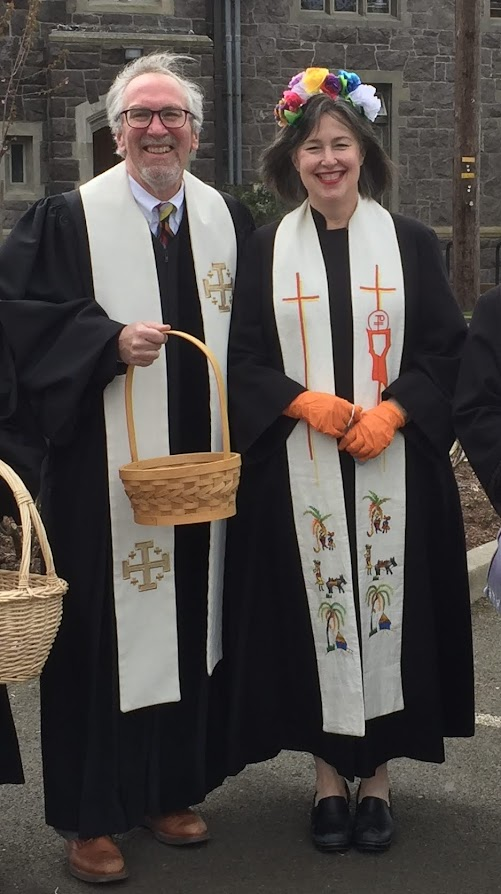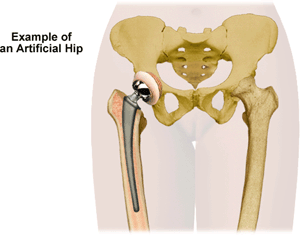When my husband and I got married nineteen years ago, one of the people on both of our invitee lists was a woman named Georgia, whom we’d both known before we knew each other. Georgia was the quintessential church lady. She would be 101 now if she was still with us, and was of that generation of women who (mostly) stayed home to raise the kids, volunteered out the wazoo, and never wore pants. That’s a tremendous generalization, of course, but you get the picture.
She was on the search committee for the first church I served. The first time I came to interview, because I was moving from the beautiful produce aisles of California to the iffy ones of the midwest, I asked if I could visit a grocery store. She looked at me for all of three seconds like I had two heads, but then said yes, and arranged a visit to the local Jewel Osco.
She was also the person who made the communion bread every month, except it was more like sweet pie crust than it was bread. I asked her once how she got to do that, and she said, “Well, when Chick C. was chair of the deacons he wasn’t married yet, and the wife of the deacons chair always made the communion bread, so I said I’d make and I never stopped.” At that point Chick C. and his wife had been married about fifty years. I didn’t question Georgia any more.
Anyway, when we got married she gave us a Waterford cookie jar which had not been on our gift registry but which delighted me. I never would have thought to register for such an elegant, impractical thing, but I loved it and love it still, though it now holds coffee pods and not cookies.

October 3 is the thirtieth anniversary of my ordination to the Ministry of Word and Sacrament in the Presbyterian Church (U.S.A.) I’ve been reflecting on that a bit, because thirty years of anything seems like a long time, but here I am much to my amazement. So I’ve been thinking about people like Georgia, and all the other saints who got me to this day.

I dare not name them because I will undoubtedly forget someone, but I am filled with the faces and stories of people who encouraged me, challenged me, thanked and congratulated me; those who pissed me off or disregarded me, those who treated me like the hired help, those thought no woman should be in a pulpit and all those women who went before me so that I could take my place there. Thank you all.
On my thirtieth ordiversary, allow me to confess a few things.
Every year of these last thirty I have thought about leaving the ministry. Being a pastor can be glorious and can be utterly disheartening. I could make more money. I could have weekends off. I could tell people what I do for a living and not have them make immediate assumptions about me. A three day weekend could really be a three day weekend without having to take a vacation day. Every year I’ve thought about doing something else. But I haven’t.
Sometimes I admit that the real reason I went into ministry is so that I would be a good person. I wasn’t sure I could be good if I weren’t tied to God and the church. I worried I would give into greed, and consumerism, and selfishness, and meanness and, maybe most importantly, not hold myself accountable for those actions. I am far, far, far from perfect, but because I am a pastor, I work harder to be good than I would if I weren’t one.
The last confession is a good one: God and Jesus placed this call in my heart and my head and God and Jesus have not left me or taken that call away. That’s as good a reason as any why I’m still here. The love of God is as strong a tether as I know, and I am grateful, because there are seasons in pastoring when it all feels like free falling and without that tether, I would be a pile of broken bones and hearts and dreams.
So I thank my family and remember when Dad and Jack and I all got baptized on the same day and the day I told Mom I was going to seminary and she said she always knew I would.
I thank my first church family at Memorial Drive Presbyterian Church in Houston.
I thank the family that took me under care at First Presbyterian Church, New Vernon, NJ.
I thank my family at San Francisco Theological Seminary.
I thank my family at Simpson United Methodist Church in Minneapolis where I interned for a year.
I thank the congregations that welcomed me and taught me and then sent me off: First Presbyterian Church, Springfield, Illinois; First Presbyterian Church, Crown Point, Indiana; Community Presbyterian Church, Clarendon Hills, Illinois; The Kettle Moraine Parish, Waukesha County, Wisconsin; Southminster Presbyterian Church, Waukesha, Wisconsin; Crossroads Presbyterian Church, Mequon, Wisconsin. And the place where I am now, for twelve years, Westminster Presbyterian Church, Portland, Oregon.
Maybe a Waterford cookie jar isn’t a bad image for ministry. It is glass, which means if it breaks it shatters and you can get hurt, but it’s leaded glass, which means it’s also durable. You can see what’s inside, not only like the fishbowl that pastors live in but also the glimpse into the intimate moments of people’s lives. And it holds good things: children of God who gather for a million different reasons, who seek the love of their Creator, who seek forgiveness, who seek wisdom and community and cookies after worship and trust and faith and hope and love.

Thank you, all. Thank you.
PS: Statistics:
135 memorials/funerals
107 baptisms
48 weddings
652 sermons
6 calls
Associate Pastor (6 Years and 3 years)
Interim Pastor (22 months)
Half-time Interim Pastor of a Four Point Parish (6 months)
Temporary Supply Pastor (7 months)
Interim Associate Pastor (16 months)
Co-Pastor (12 years and counting)






